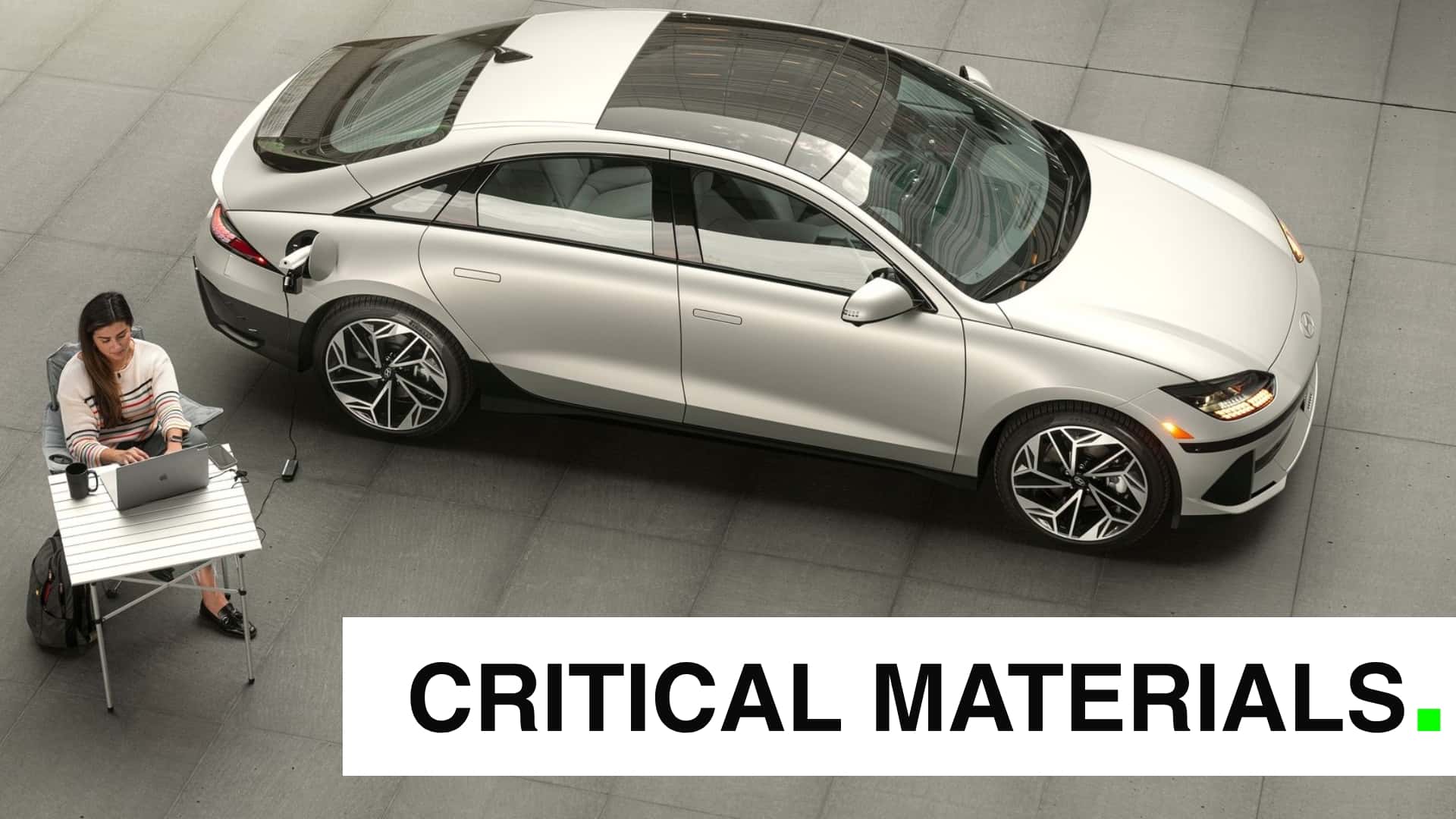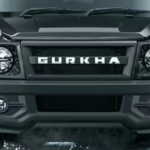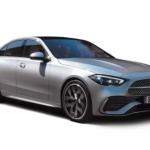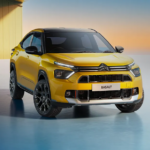

Lack Of Exposure, Experience Is Also Hurting EV Sales: Consumer Reports
[ad_1]
I think every electric vehicle owner has had that “a-ha” moment; that instance when you just sort of get how everything works, when fear gives way to excitement about the advantages of moving on from gasoline, when everything clicks. Sometimes that happens behind the wheel. Other times, it happens when someone you know and trust can show you the way.
Regardless of how it happens, that lack of firsthand and secondhand experience may be a big factor in holding back wider EV adoption. That leads off this midweek edition of our Critical Materials morning news roundup. Also on today’s reading list: that hot new Chrysler concept touts batteries of the future that do not quite exist yet, and that unusual Sony-Honda tie-up is supposedly still a go. Let’s dig in.
30%: When It Comes To EVs, Experience Matters

Some will tell you the EV market is stalling out in 2024. Here at InsideEVs, we believe it’s far more likely that we’re in between adoption waves; that people are still buying EVs, just not at the rapid-fire rate many predicted last year; and that customers are waiting for EVs to get cheaper, and for the charging networks to get better and more expansive. Various breakthroughs should happen in the next few years that are expected to make those things happen. (I’d also argue that the massive sales of hybrid cars as of late proves people want to break up with gasoline, if given the chance.)
But one other key to wider adoption is experience. People fear what they don’t know, and too often, myths around EV driving eclipse reality.
Fixing that is going to be a task for automakers, dealers and even existing owners, Consumer Reports told Automotive News:
Consumer Reports asked 9,030 Americans in its 2023 EV Survey if they have seen an electric-only vehicle in their neighborhood in the past month; have a friend, relative or co-worker who owns an electric-only vehicle; have been a passenger in an electric-only vehicle in the past year; and have driven an electric-only vehicle in the past year.
Thirty-four percent of respondents answered no to each question; 5 percent answered yes to all four.
As EV sales increase, “hopefully more people are seeing and more people are knowing friends and neighbors who have them,” said Chris Harto, Consumer Reports’ senior sustainability policy analyst. “It might be slow for a couple of years until we kind of get over a little bit of that experience hump.”
For example, you constantly hear about people worried about getting “stuck” if they run out of range; how often does that actually happen? In my experience, very little, barring the occasional disaster. People need examples close to them of successful EV driving, as that tends to directly change their minds. Furthermore, Consumer Reports says the purchasing incentives and tax rebates are still too esoteric and unknown, something we’ve heard before too.
In any case, education is going to be key here. A Consumer Reports analyst puts some of that on the dealers, but I’m not especially optimistic they will step up; it may be on ordinary folks (like you!) to show your friends, family and neighbors the way.
60%: Chrysler’s Halcyon Concept EV Promises Lithium-Sulfur Batteries, But What Even Are Those?

I actually think the new Chrysler Halcyon concept looks fantastic. Problem is, it’s yet another concept from a company that’s made many of those lately and has failed to deliver any of them, and one hell of an ambitious swing from a beleaguered brand that currently sells one (1) minivan.
To their credit, it is a very good minivan.
But the Halcyon concept is packed with all kinds of theoretical tech, including wireless charging and 800-volt lithium-sulfur batteries. What even are those? Kudos to Car and Driver (and InsideEVs) contributor John Voelcker for digging into that, and seeing where Stellantis is at on them. If achieved, they could have a carbon footprint that is some 60% less than today’s best batteries. But that’s a huge if:
The Lyten cells it “envisions” using do not include nickel, cobalt, or manganese among their metals. Instead, they use sulfur, which is lower on the atomic table than metals used in today’s lithium-ion cells—meaning the cells are more energy-dense, i.e. they weigh less for a given energy capacity. Sulfur is also the fifth most common element on earth, found in volcanic regions and near hot springs across the globe, which could reduce its raw-materials cost.
Lithium-sulfur cells swap in sulfur for the various mixtures of nickel, manganese, cobalt, and aluminum (collectively known as NMCA) found in most of today’s EV cells. In theory, this results in higher energy density than current cells, which translates to more EV range in less volume—and less mass. But, as of today, not a single on-road vehicle is powered by the technology.
Still, efforts to reduce or eliminate the use of rare and expensive metals have surged as EV makers look past today’s NMCA and the lower-cost but less energy-dense iron phosphate (LFP) chemistries. The goal is to use other elements—especially plentiful ones—that have the right energy-carrying properties.
In typical automaker fashion, Stellantis didn’t really want to go into detail for John here. But when he asked the director of energy storage at the Electric Power Research Institute (EPRI) for his thoughts, the response was, “it’s likely to take years of steady work on the technology to [create] successful products, scalable manufacturing, and commercialization.”
As John notes, if Chrysler does succeed in rolling out more EVs in the coming years, they’re far more likely to use conventional lithium-ion batteries than what’s described in the Halcyon concept. Worth a read in full.
90%: Sony And Honda Actually Want To Release Three EVs By 2030 Now

For the life of me, I can’t figure out Afeela, the Sony-Honda electric vehicle joint venture—and I’ve interviewed their executives before.
To give you a quick recap of Afeela, the team-up brand was announced at CES 2023 with the debut of an advanced EV sedan packed with AI, Lidar, advanced automated driving features and tons of built-in content from Sony’s vast movie, music, TV and video game library.
Now, Sony’s foray into cars makes some sense; the tech giant doesn’t want to get left behind in the software-defined vehicle era, and of course it wants to extend its vast entertainment empire into the car for the theoretical day when we’re mostly just watching movies inside them instead of driving.
It’s the Honda part that doesn’t add up as much to me. The Afeela car won’t use the General Motors Ultium platform underpinning the new Honda Prologue, and though the car will be built in Ohio alongside Honda’s many other vehicles, it all seems to be a different, heavily Sony-driven effort separate from Honda’s own EV plans. They kind of seem like two competing efforts, right?
Even so, they aren’t slowing down. Japan’s Nikkei Asia reports that Afeela is now planning three models in just the next few years:
Sony Honda Mobility will debut a sedan in 2025, an SUV in 2027 and an “affordable” compact in 2028 or later. The three models will go up against Tesla in the U.S. Sony Honda Mobility previously indicated that the sedan EV will be launched under the Afeela brand. Now it appears two more models will be included in the line.
The joint venture intends to strengthen its development structure as it expands its product lineup. In January it began hiring mid-career engineers. It intends to double its workforce to around 500 employees. The three models will share the same chassis to reduce costs and speed up development.
Perhaps most interestingly, the third car is said to be Toyota Corolla- or Volkswagen Golf-sized, and “expected to share parts with Honda’s independently developed EVs.” We need more small, affordable EVs, so if this joint venture can deliver, maybe it’s a good thing?
Whatever. I’m intrigued, so long as I don’t have to sit through a trailer for whatever abysmal Spider-man-adjacent movie Sony is hawking then just to start my car because I refuse to pay for the Premium-Tier Ad-Free Vehicle Subscription.
100%: Have You Been An ‘EV Influencer’?
I don’t love that term either, but there is some truth to it. Have you, as an EV driver (if you are one, and if you aren’t, we’re glad you’re here!) ever helped win someone over on the concept of electric cars? Have you helped dispel myths and made people think a little differently about battery power? Let us know in the comments.
[ad_2]
Source link
Add a comment Cancel reply
Categories
- Car News (8)
- Car Reviews (2)
- Cars News (95)
- Electric Cars (79)
- Electric Two-wheeler (76)
- Electric Vehicle (78)
- Experts Reviews (3)
- Gallery (11)
- New Arrivals (380)
- Uncategorized (6)
- Used Cars (54)
- XUV Cars (4)








